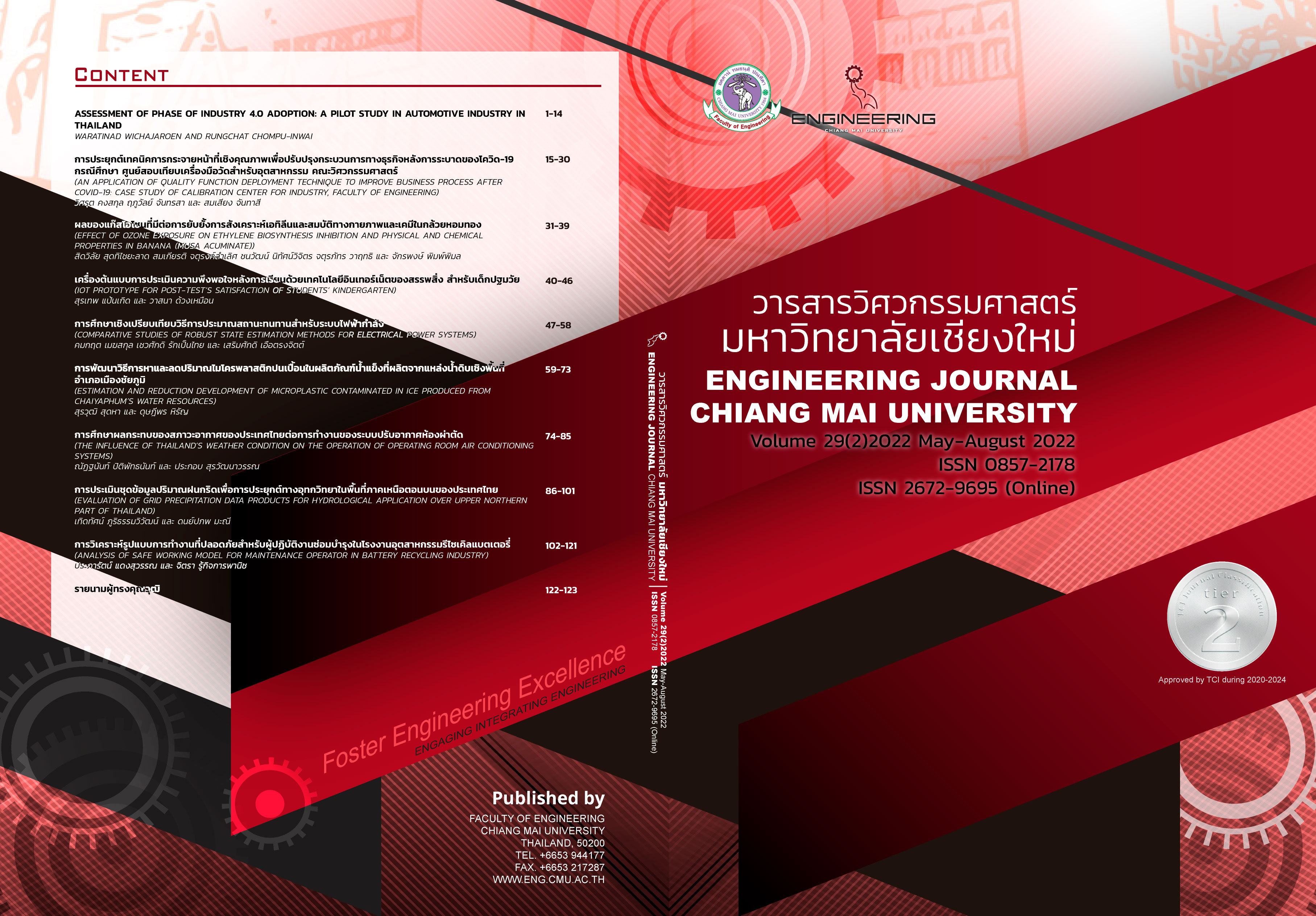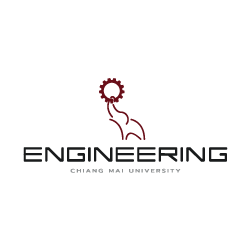Assessment of Phase of Industry 4.0 Adoption: A Pilot Study in Automotive Industry in Thailand
Keywords:
Industry 4.0 phase, Automotive industryAbstract
The fourth industrial revolution, often known as Industry 4.0, integrates many practices of technologies in the digital transformation. Technology adoption in Industry 4.0 enables mass customization as well as self-monitoring for production and expanding information collaboration of machine-to-machine communication (M2M) for the virtualized analysis of new responses and real-time diagnosis of problems. Entering Industry 4.0 has several stages, therefore, determining which certain stage the company is in will affect its preparation in various fields, such as investments in technology and personnel. In addition, the government can also prepare the support for this transformation. Thus, the purpose of this research is to develop a model to classify the phases of Industry 4.0 adoption for companies. The purposed model classifies Industry 4.0 into 5 phases: phase 0 beginner; phase 1 sensor; phase 2 automation; phase 3 integration; and phase 4 intelligence. Twelve aspects are considered: (1) the company’s implementation of the Industry 4.0 strategy (2) the company’s investment in the implementation of Industry 4.0 (3) the company’s information technology (IT) equipment infrastructure through the collecting, storage, and processing of data (4) the company’s operations via IT systems in its supply chain (5) the company’s usage of cloud technology (6) the company’s status of IT security (7) the company’s autonomous processes for production (8) the company’s status of information sharing (9) the company’s products equipped with information communication technology (ICT) components (10) the company’s data-driven services (11) the company’s data analytics services of its products in the usage phase (12) the company’s requirements for workforce qualifications of Industry 4.0. The purposed model was then used to classify 31 companies in the automotive industry in Thailand, which has been dramatically affected by Industry 4.0 adoption, into different phases of Industry 4.0. It was found that most of the sample automotive companies are in phase 2 automation.
References
D. T. Matt, V. Modrák and H. Zsifkovits, Industry 4.0 for SMEs Challenges, Opportunities and Requirements. Switzerland: Springer Nature, 2020.
K. Lichtblau, V. Stich, R. Bertenrath, M. Blum, M. Bleider, A. Millack, K. Schmitt, E. Schmitz and M. Schröter, "IMPULS: Industrie 4.0 readiness," VDMA (Mechanical Engineering Industry Association), 2015.
Thammasat University Research and Consultancy Institute [TURCI], "Thailand's MICE Industry Report Robotics," Thailand Convention & Exhibition Bereau, 2018.
Office of the National Economic and Social Development Board [NESDB], "The twelfth national economic and social development plan," Office of the Prime Minister, Thailand, 2017.
Thailand Automotive Institute, "GWM officially opened the 2nd fully operational factory outside China in Thailand," 9 June 2021. [Online]. Available: https://www.thaiauto.or.th/2020/news/?news_subtype=automotive_industry_news. [Accessed Jul. 18, 2022].
J. Lee, B. Bagheri and H. A. Kao, "A cyber-physical systems architecture for Industry 4.0-based manufacturing systems," Manufacturing Letters, vol. 3, Jan., pp. 18-23, 2015.
H.-P. Lu and C.-I. Weng, "Smart manufacturing technology, market maturity analysis and technology roadmap in the computer and electronic product manufacturing industry," Technological Forecasting & Social Change, vol. 133, Aug., pp. 85-94, 2018.
S. Rakic, M. Pavlovic and U. Marjanov, "A precondition of sustainability: Industry 4.0 readiness," Sustainability, vol. 13, no. 6641, pp. 1-12, 2021.
T. Todorovic, B. Lalic, V. Majstorovic, U. Marjanovic and N. Tasic, "General readiness assessment of Industry 4.0: evidence from Serbian manufacturing industry," Advances in Production Management Systems. The Path to Digital Transformation and Innovation of Production Management Systems. APMS 2020. IFIP Advances in Information and Communication Technology, vol. 591, pp. 139-146, 2020.
W. Maisiri and L. van Dyk , "Industry 4.0 Readiness Assessment for South African Industries," South African Journal of Industrial Engineering, vol. 30, no. 3, pp. 134-148, 2019.
H. F. Castro, . A. R. F. Carvalho, F. Leal and H. Gouveia, "Assessing Industry 4.0 readiness of Portuguese companies," in Progress in Digital and Physical Manufacturing. ProDPM 2019. Lecture Notes in Mechanical Engineering, H. Almeida and J. Vasco, Eds., Springer Nature, 2020, pp. 57-64.
F. Ismail and A. Zubairi, "Item objective congruence analysis for multidimensional items content validation of a reading test in Sri Lankan university," English Language Teaching, vol. 15, no. 1, Dec., pp. 106-117, 2021.
J. D. Brown, Testing in language programs: a comprehensive guide to English language assessment. Hawaii, U.S.: McGraw-Hill College, 2005.
Downloads
Published
Issue
Section
License
ลิขสิทธิ์ของบทความที่ตีพิมพ์ในวารสารฉบับนี้จะยังเป็นของผู้แต่งและยินยอมให้สิทธิ์เผยแพร่กับทางวารสาร
การเผยแพร่ในระบบวารสารแบบเปิดนี้ บทความจะสามารถนำไปใช้ได้ฟรีในการศึกษา และในทางที่ไม่เกี่ยวกับการค้า




